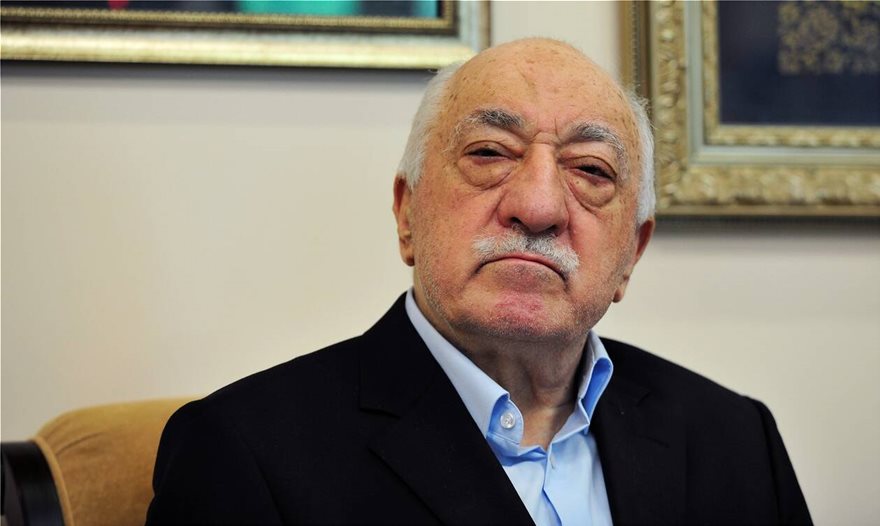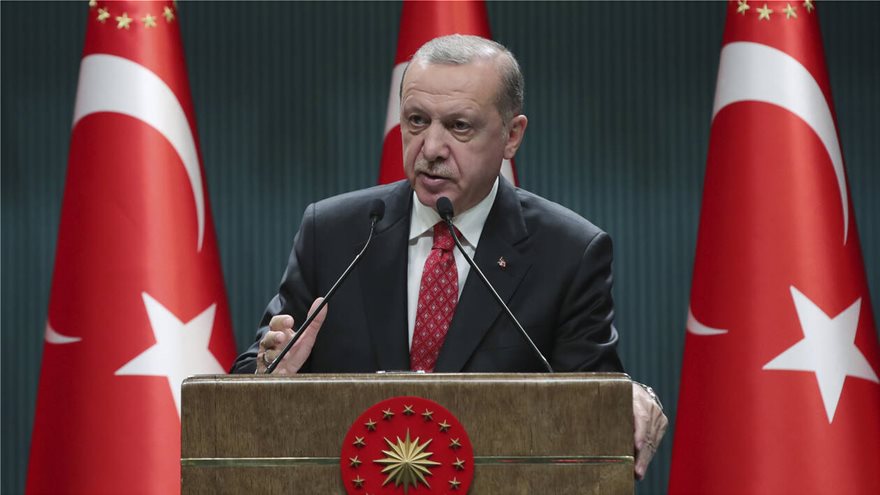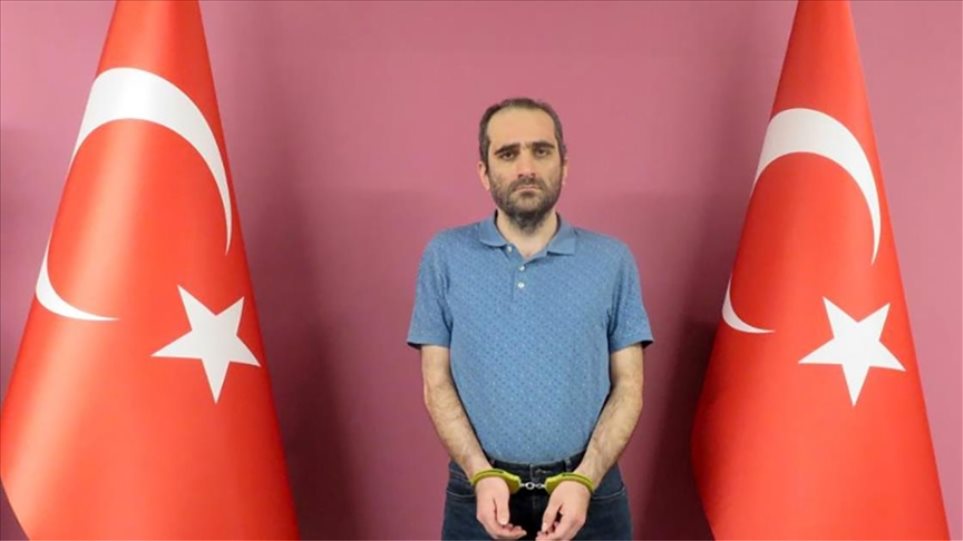Although not official Fethullah Gulen’s nephew found in Kenya – Special operation set up to ‘repatriate’ to Turkey – Anadolu posts photo of him handcuffed – Turkish embassies operate as spy centers
Turkish spies appear to have abducted and forcibly repatriated the nephew of the cleric Fethullah Gulen . It is Selahaddin Gulen, who according to the first information was located by MIT agents in Nairobi, Kenya – although the country was not officially named – and after a special operation is in Turkey . He faces charges of joining a terrorist organization. Little is known about the young man and his relationship with the Gulen network , other than the surname he shares with his uncle. It remains unclear whether the MIT operation was carried out in collaboration with its authoritiesKenya or not.
The Anadou agency also published a photo of the specific man in handcuffs, between two Turkish flags. We remind you that Fethullah Gulen , who now lives in the United States, is an imam, the leader of a fraternity that had close relations with America. He had managed to penetrate the state mechanisms of Turkey , while controlling banks, companies, media, universities and a large network of schools and charities.
Although initially, through this network , Erdogangained allies in critical mechanisms and the two men were close allies, they came to a rupture. Since then, Erdogan has blamed him for the failed 2016 coup and demanded his extradition from the United States . For his part, Gulen does not accept the accusations. He claims to be the leader of a peaceful network of NGOs and operations and denies any involvement in the military coup attempt.

Gulen’s nephew is not the only one “repatriated” after the coup. Dozens of people have been abducted, mostly from the Balkans and Africa. In 2018, the abduction in Kosovo by MIT agents of six Turkish nationals accused of links to Gulen had sparked a political crisis in Pristina and led to the deportation of the interior minister and the head of the intelligence service. Salos had, in fact, been provoked by the revelation that Turkish embassies and consulates in various countries function as spy centers.
Specifically, the action of the Turkish embassy in Polandas a long arm of the Turkish secret services sparked a criminal investigation. A secret document that had just come to light had revealed that a Turkish nationalliving in Poland had fallen victim to surveillance by the Turkish embassy there, which had sent information about him to Ankara. The same is true in general all over Europe and beyond. There are many Turkish citizens living abroad who, with the help of the respective embassies, are abducted and forcibly returned back to Turkey. Turkish agents and diplomats are also leading these operations.
The luckiest dissidents are deprived of consular services, and their passports are revoked. These tactics, which blatantly violate international law, have been recognized by the United Nations. In the recent past, Felipe Morales, Special Rapporteur on the Human Rights of Immigrants, sent a letter to the Turkish government expressing concern over the “systematic practice of Turkish-funded extrajudicial kidnappings and the forcible return of many Turkish nationals.” states in Turkey “.

Similarly, the United Nations Working Group on Arbitrary Detention found at its 87th meeting between 27 April and 1 May 2020 that the deprivation of liberty of three persons by the Turkish government was arbitrary, had no legal basis and violated the Declaration of Human Rights. Rights and the International Covenant on Civil and Political Rights. The allegations in the letter revealed the illegal involvement of diplomats in the deportation of people linked to the Gulen movement. In many cases, Turkish ambassadors collaborated with MIT to abduct Turkish nationals abroad. An illustrative example is the Turkish embassy inPristina .
According to local sources, this was the basis for the supply and planning of the abduction and served as a detention center. Threats, abductions, and suspected deaths of Kurdish activists, members of the Gulen fraternity, and other dissidents have troubled the security authorities of many countries, including Germany, France, Belgium, and the Netherlands.
According to information, a secret MIT team is based in The Hague, which has also compiled “death lists”, which include Kurds, Turks and European citizens who are fierce critics of Erdogan. According to European security services, non-diplomatic Turkish agents are usually employed in travel agencies, banks, large private companies and, of course, in mosques. The persecution of Gulen’s followers continues in Turkey itself, where five years after the coup attempt, the persecution does not stop. Since 2016, tens of thousands of people have been arrested and at least 140,000 have been fired or made available, including thousands of military personnel.
Another nephew of Fethullah Gulenchose or was forced into a completely different path when it was revealed that he was a valuable informant of the Turkish Secret Services. It provided information that led to the arrest of dozens of people. According to the documents, Tavus Bin Keisan Gulen, who lives in America, collaborated with MIT from the beginning of 2016 onwards.



